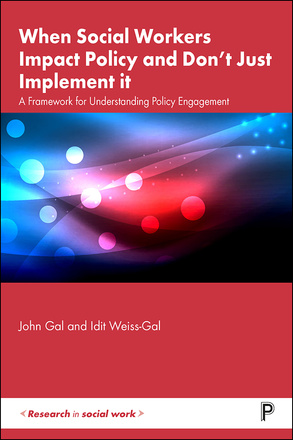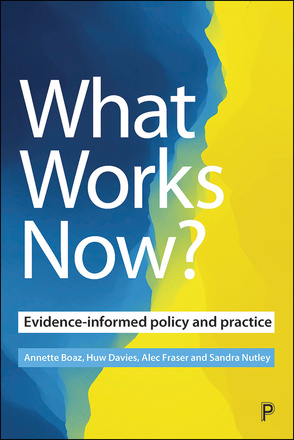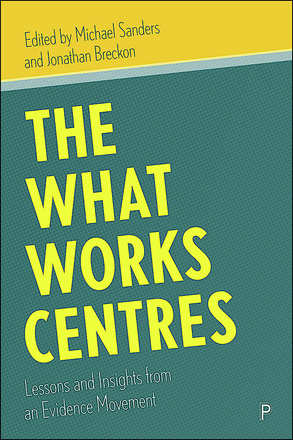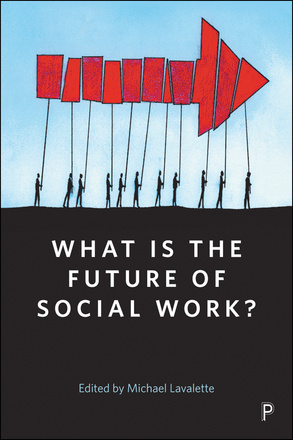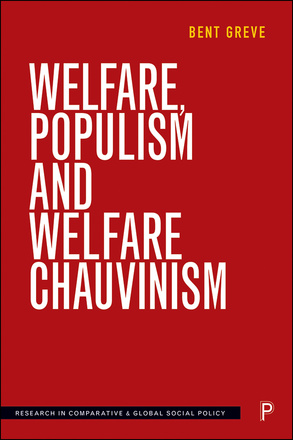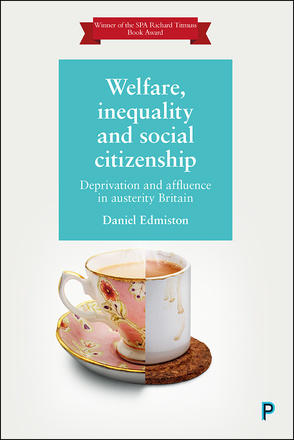Social Policy
When Social Workers Impact Policy and Don’t Just Implement It
A Framework for Understanding Policy Engagement
Rather than being seen simply as social policy implementors, in recent decades there has been recognition of the unique insights that social workers can bring to policy formulation. This book offers a theoretical framework for understanding why social workers engage in policy, and the implications for research, education and practice.
What’s Wrong with Social Security Benefits?
This provocative short book is a valuable introduction to social security in Britain and the potential for its reform.
What Works Now?
Evidence-Informed Policy and Practice
Building substantially on the earlier, landmark text, What Works? (Policy Press, 2000), this book brings together key thinkers and researchers to provide a clearly-structured review of the aspirations and contemporary realities of evidence-informed policy and practice.
The What Works Centres
Lessons and Insights from an Evidence Movement
Leaders, researchers and practitioners from the UK “What Works Network” share their insights on the successes, failures, and future of the What Works Centres, which have proven successful and popular across a number of policy settings.
What Is the Future of Social Work?
This book offers a unique analysis of the challenges facing contemporary social work that considers the multi-faceted threats to the profession. It provides in-depth reflections on the future of social care practice and solutions for students and practitioners.
What Is Public Trust in the Health System?
Insights into Health Data Use
This important book uses empirical evidence to explore the concept of public trust in health systems.
In doing so, it provides a comprehensive contemporary explanation of public trust, how it affects health systems and how it can be nurtured and maintained as an integral component of health system governance.
What Is Philanthropy For?
Philanthropy, the use of private assets for public good, has been much criticized in recent years. Rhodri Davies, drawing on his deep knowledge of the past and present landscape of philanthropy, examines pressing questions that philanthropy must tackle if it is to be equal to the challenges of the 21st century.
What Have Charities Ever Done for Us?
The Stories Behind the Headlines
What Have Charities Ever Done for Us? uses case studies and interviews to illustrate how charities support people and communities, foster heritage and culture and pioneer responses to crucial social, ethical and environmental questions.
What future for social security?
Debates and reforms in national and cross-national perspective
It is widely assumed today that the 'welfare state' is contracting or retrenching as an effect of the close scrutiny to which entitlement to social security benefits is being subject in most developed countries. In this book, fifteen authorities from nine different countries investigate to what extent this assumption is warranted.
What Brexit Means for EU and UK Social Policy
With the UK’s decision to leave the EU as one of the greatest challenges in the EU’s history, this book seeks to understand the role played by social policy in the referendum campaign and withdrawal negotiations, and considers what Brexit means for social policy development both in the UK and across the EU.
Welfare, Populism and Welfare Chauvinism
In a time of increasing inequality, why has there been a recent surge of support for political parties who promote an anti-welfare message? Using a mixed methods approach and newly released data, this book aims to answer this question and to show possible ways forward for welfare states.
Welfare, Inequality and Social Citizenship
Deprivation and Affluence in Austerity Britain
Offers a rare and vivid insight into the everyday lives, attitudes and behaviours of the rich as well as the poor across the UK, demonstrating how those marginalised and validated by the existing welfare system make sense of the prevailing socio-political settlement and their own position within it.







